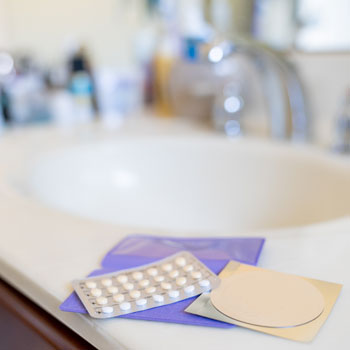Birth Control Methods: What To Consider

Answer a few questions and we'll provide you with a list of primary care providers that best fit your needs.
During your childbearing years, there may be times when you don’t want to get pregnant. The most effective way to prevent pregnancy is to choose not to have sex. If this isn’t practical, it’s good to know that modern medicine offers multiple options for contraception.
You’ll want to weigh the pros and cons of health considerations, convenience, cost, and effectiveness of various methods as you decide what’s best for you. Most insurance plans cover prescription birth control medicine and procedures. Talk to your doctor or health care provider about health risks and benefits of these birth control choices:
Abstinence – not having sex – is, as already mentioned, the only foolproof method of avoiding pregnancy.
 The birth control pill is 99 percent effective when taken by mouth every day at the same time. One type of pill combines the hormones estrogen and progestin to prevent ovulation. It also creates other bodily changes that make it harder for a fertilized egg to attach to the uterus. A mini pill with progestin alone works by thickening your cervical mucus to slow down sperm and thinning the lining of your uterus to make it harder for a fertilized egg to implant.
The birth control pill is 99 percent effective when taken by mouth every day at the same time. One type of pill combines the hormones estrogen and progestin to prevent ovulation. It also creates other bodily changes that make it harder for a fertilized egg to attach to the uterus. A mini pill with progestin alone works by thickening your cervical mucus to slow down sperm and thinning the lining of your uterus to make it harder for a fertilized egg to implant.
Other hormonal contraceptive methods include a patch (apply a new patch once a week for three weeks and then skip the fourth week and repeat the cycle), shot (every three months), implant rod under the skin in your upper arm (lasts for three years) or ring you place inside your vagina and replace once a month. All release hormones to prevent pregnancy. These are 91 to 99.5 percent effective.
Intrauterine device (IUD) is a T-shaped device that your doctor implants in your uterus that can remain there for up to 10 years. It works by changing the mucus inside your cervix, the lower end of the uterus, and preventing sperm from joining with an egg. An IUD is 99 percent effective in preventing pregnancy.
Barrier methods prevent sperm from reaching the egg and must be used each time you have sex. These methods include condoms, a diaphragm, a cervical cap, and a sponge, all of which a woman can place in her vagina. You also can place spermicide in your vagina to kill sperm (comes as foam, gel, cream, film, suppository, or tablet). This is most effective when used in combination with other barrier methods. Male partners also can wear a condom, which has the added benefit of preventing sexually transmitted disease. These methods are 79 to 88 percent effective.
You’ll want to weigh the pros and cons of health considerations, convenience, cost, and effectiveness of various methods as you decide what’s best for you.
Natural family planning and other fertility awareness methods have you track your monthly fertility patterns and avoid having sex during and just before your most fertile days. Ovulation kits and fertility monitors help you determine when you are going to ovulate. You also have the option of using barrier methods as a precaution during peak fertility. Natural family planning also can be useful when you are trying to get pregnant, as it helps you identify the days you are most likely to get pregnant. This method is about 76 percent effective in preventing pregnancy.
Withdrawal of a man’s penis before he ejaculates is about 78 percent effective, because sperm can be released before he pulls out.
Permanent birth control includes a surgical procedure to have your fallopian tubes tied (closed off) or removed to prevent sperm and egg from meeting. For men, a vasectomy keeps a man’s sperm from going to his penis, so that during intercourse no sperm is released into the woman’s vagina. These methods are more than 99 percent effective.
Emergency contraception may be an option if you have had unprotected sex and do not wish to get pregnant. You can have a type of IUD called a copper IUD inserted within five days of unprotected sex. Another option is to take an emergency contraceptive pill up to five days after having unprotected sex. There are both over-the-counter and prescription pills.
If you have just had a baby, breastfeeding can be a form of birth control. Breastfeeding exclusively reduces fertility; however, this is not a reliable form of birth control by itself.
Answer a few questions and we'll provide you with a list of primary care providers that best fit your needs.
Sources: WomensHealth.gov, FamilyDoctor.org, Centers for Disease Control & Prevention

